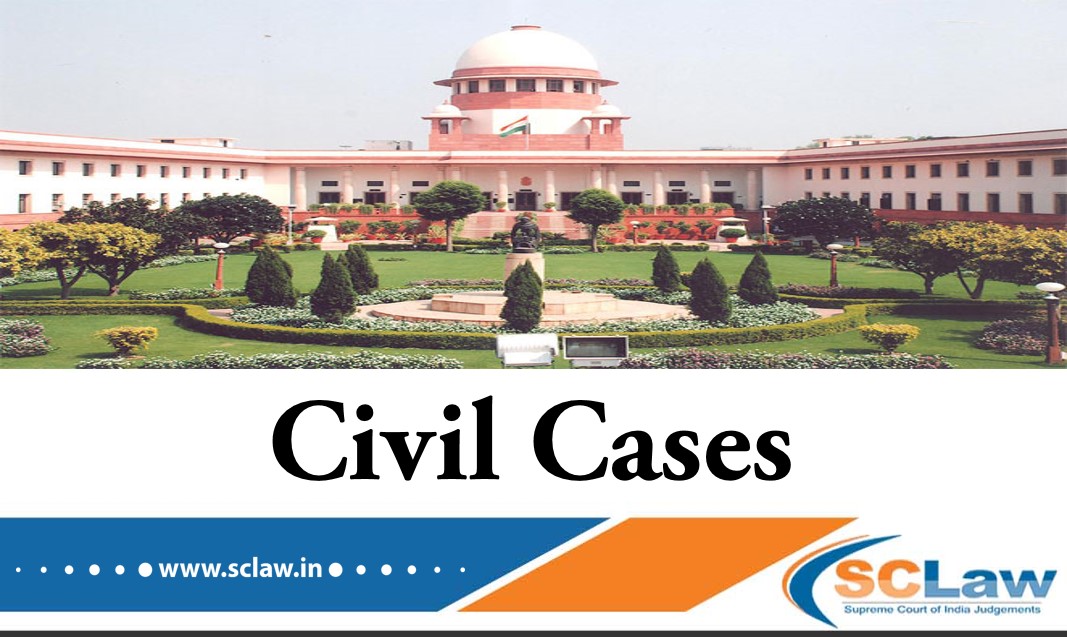-Culpable Homicide–Murder–Sudden Fight–The help of Exception 4 can be invoked if death is caused (a) without premeditation, (b) in a sudden fight; (c) without the offender’s having taken undue advantage or acted in a cruel or unusual manner; and (d) the fight must have been with the person killed–To bring a case within Exception 4 all the ingredients mentioned in it must be found–Penal Code, 1860, Section 300 Exception 4 and Section 304 Part I.
2008(1) LAW HERALD (SC) 423 IN THE SUPREME COURT OF INDIA Before The Hon’ble Mr. Justice Dr. Arijit Pasayat The Hon’ble Mr. Justice Aftab Alam Appeal (crl.) 12 of 2008 …
Promotion–Relaxation in Rules–There should not be any relaxation in rules unless the eligible and qualified candidates are not available–Relaxation should not be exercised to perpetuate mistake. Promotion–Respondent was promoted though he was not eligible and qualified–Held; mistakes are mistakes and can be corrected by following the due process of law.
2008(1) LAW HERALD (SC) 417 IN THE SUPREME COURT OF INDIA Before The Hon’ble Mr. Justice C.K. Thakker The Hon’ble Mr. Justice J.M. Panchal Civil Appeal No. 5865 of 2007…
Respondent themselves have prayed for mense profits @ Rs. 900/- pm and while granting SLP Supreme Court has directed to deposit Rs. 900/- pm and fact that son of the appellant has inducted a tenant in a premises, adjacent to tenanted premises @ Rs. 20,000/- pm–Interim order of depositing Rs. 20,000/- pm charges to Rs. 5,000/- pm.
2008(1) LAW HERALD (SC) 416 IN THE SUPREME COURT OF INDIA Before The Hon’ble Mr. Justice Tarun Chatterjee The Hon’ble Mr. Justice Dalveer Bhandari Appeal (civil) 56 of 2008 Sharma…
Termination–Reinstatement–Merely because an employee has completed 240 days of work in a year preceding to date of retrenchment, the same would not mean that his services were liable to be regularized.
2008(1) LAW HERALD (SC) 413 IN THE SUPREME COURT OF INDIA Before The Hon’ble Mr. Justice S.B. Sinha The Hon’ble Mr. Justice G.S. Singhvi Appeal (civil) 5875 of 2007 Mahboob…
Arbitration Law–Interest on award–Little confession in direction of arbitrator–It is presumed that arbitrator has granted simple interest @ 10% p.a. from date of decree till payment in full
2008(1) LAW HERALD (SC) 412 IN THE SUPREME COURT OF INDIA Before The Hon’ble Mr. Justice G.P. Mathur The Hon’ble Mr. Justice P. Sathasivam Appeal (civil) 12 of 2008 Ghulam…
IMP – FUTURE PROSPECTS- Future prospect to to be added on standardised percentage for Self employed, Fixed salary person even after the age of 50.
SUPREME COURT OF INDIA (Constitution Bench) Before :- Dipak Misra, CJI, A.K. Sikri, A.M. Khanwilkar, Dr. D.Y. Chandrachud and Ashok Bhushan, JJ. Special Leave Petition (Civil) No. 25590 of 2014.…
Transfer of Land–Granted land were intended for benefit and employment of original grantee and condition on original grantees restricting the transfer of same of a particular period.
2008(1) LAW HERALD (SC) 408 IN THE SUPREME COURT OF INDIA Before The Hon’ble Mr. Justice Dr. Arijit Pasayat The Hon’ble Mr. Justice P. Sathasivam Civil Appeal No. 7039 of…
Misconduct–Removal–Charge of issuance of forged licence–Misconduct of such a magnitude, when proved, cannot be ignored on surmises and conjectures–Equity in such a case would have no role to play.
2008(1) LAW HERALD (SC) 405 IN THE SUPREME COURT OF INDIA Before The Hon’ble Mr. Justice S.B. Sinha The Hon’ble Mr. Justice Harjit Singh Bedi Appeal (civil) 2322 of 2006…
Estoppel–Electricity Tariff–Levy of Surcharge–Doctrine of estoppel would apply in the case where the promise was made and it would not be applicable if no such promise was made. Tariff approved by the Commission cannot be changed by the Licensee–In case if the licensee(Corporation) violates the tariff so fixed, appropriate legal action can be taken against it.
2008(1) LAW HERALD (SC) 392 IN THE SUPREME COURT OF INDIA Before The Hon’ble Mr. Justice S.B. Sinha The Hon’ble Mr. Justice Harjit Singh Bedi Appeal (civil) 5789 of 2002 …
Surplus area–Utilisation of–High Court referred decision related to Maharashtra and U.P. to decided against appellant but recorded no finding to the effect whether Maharashtra and U.P. Statutes have any provision similar to Section 10A(b) of Punjab Security of Land Tenures Act, matter remitted to High Court to decide afresh.
2008(1) LAW HERALD (SC) 388 IN THE SUPREME COURT OF INDIA Before The Hon’ble Mr. Justice Dr. Arijit Pasayat The Hon’ble Mr. Justice P. Sathasivam Civil Appeal No. 1645-1647 of…














